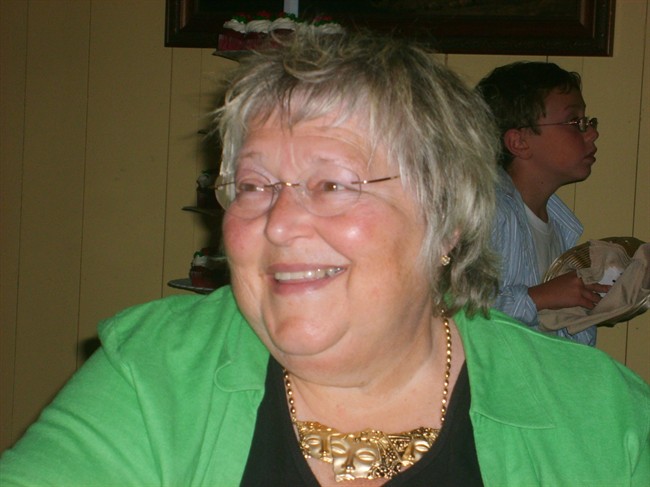
Judge makes recommendations in death of woman sent home from hospital in cab
WINNIPEG – A judge has ruled that the death of a senior hours after she was sent home from a Winnipeg hospital in a cab was not preventable.
But Judge Margaret Wiebe said in her inquest report, released Tuesday, that Heather Brenan’s death was still a tragedy that has raised concerns about her medical care.
The judge made 25 recommendations, including calling for more patient beds at the Seven Oaks hospital.
Brenan’s daughter, Dana Brenan, who has filed a wrongful death lawsuit against the hospital, said she thinks the recommendations are sound.
“But it’s still unclear who’s going to make sure that the doctors, the departments, the administrators of the hospital are following these recommendations. And so in that, I think, there’s a failure.”
Her 68-year-old mother spent four days in the hospital’s overcrowded emergency department before she was discharged on the frigid night of Jan. 27, 2012.
She was sent home without house keys but hospital staff did call a friend who met Brenan at her house to let her in.
Brenan struggled to walk to her back door, then collapsed and was rushed back to Seven Oaks. She died the next morning of a blood clot that had travelled from a leg into her lung.
Months later, two other patients were sent home in taxis from Winnipeg’s Grace Hospital and died on their doorsteps.
David Silver, 78, was found frozen about 14 hours after he was sent home in the middle of the night. The other patient, 62-year-old Wayne Miller, was spotted on a sidewalk by a passing driver who called 911.
An internal investigation by the Winnipeg Regional Health Authority later found Grace staff did nothing wrong when they decided to discharge the two men. Both had been suffering from underlying medical conditions that caused their sudden deaths.
Brenan suffered from obesity and diabetes, among other health conditions. In the months before she died, she had trouble eating and had lost 40 pounds. Her family doctor advised her to get to a hospital.
At Seven Oaks, Brenan was given tests and treated for dehydration and kidney failure.
The judge said all of the physicians who saw Brenan at Seven Oaks believed her death was unpredictable.
What should have been prevented, Wiebe said, was the length of time Brenan spent in the emergency department and the number of staff she saw — more than 20.
She was never admitted to a ward.
The judge noted that the health region has since made several changes. It now requires patients staying in the ER longer than 24 hours be admitted so they can be placed under the care of a dedicated doctor.
It also has a protocol for safe discharges for elderly and vulnerable people.
It is further planning to move 19 geriatric patients from Seven Oaks to a long-term care facility. It will then convert that space and add 30 beds.
Wiebe said she understands that will take time, but hopes the plan will be made a “higher priority.”
“Heather Brenan is responsible for many of these changes,” wrote Wiebe.
“Her experience at (Seven Oaks), and the circumstances of her treatment and discharge, has resulted in a number of positive changes in policies and protocols which will benefit other people going forward.”
— By Chris Purdy in Edmonton
Join the Conversation!
Want to share your thoughts, add context, or connect with others in your community? Create a free account to comment on stories, ask questions, and join meaningful discussions on our new site.



















Leave a Reply
You must be logged in to post a comment.